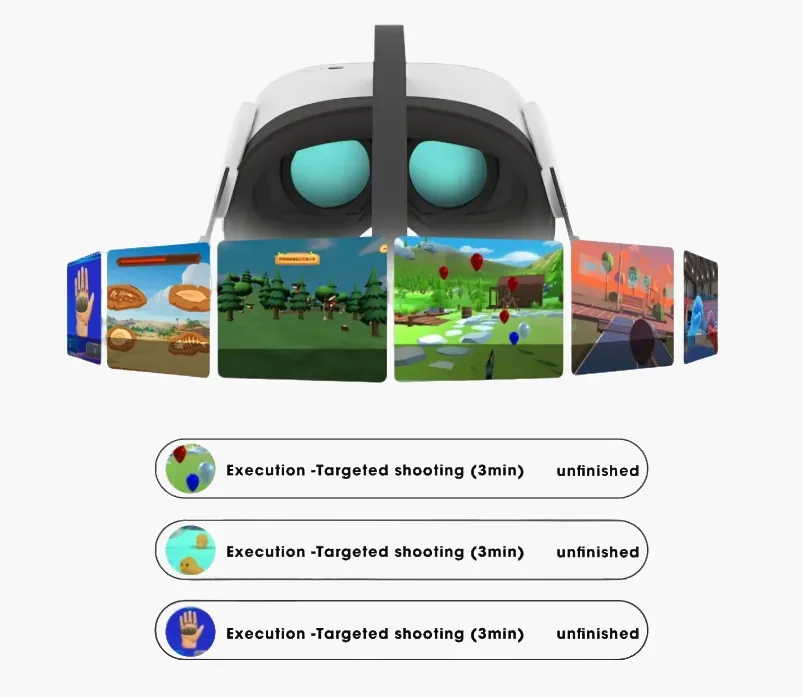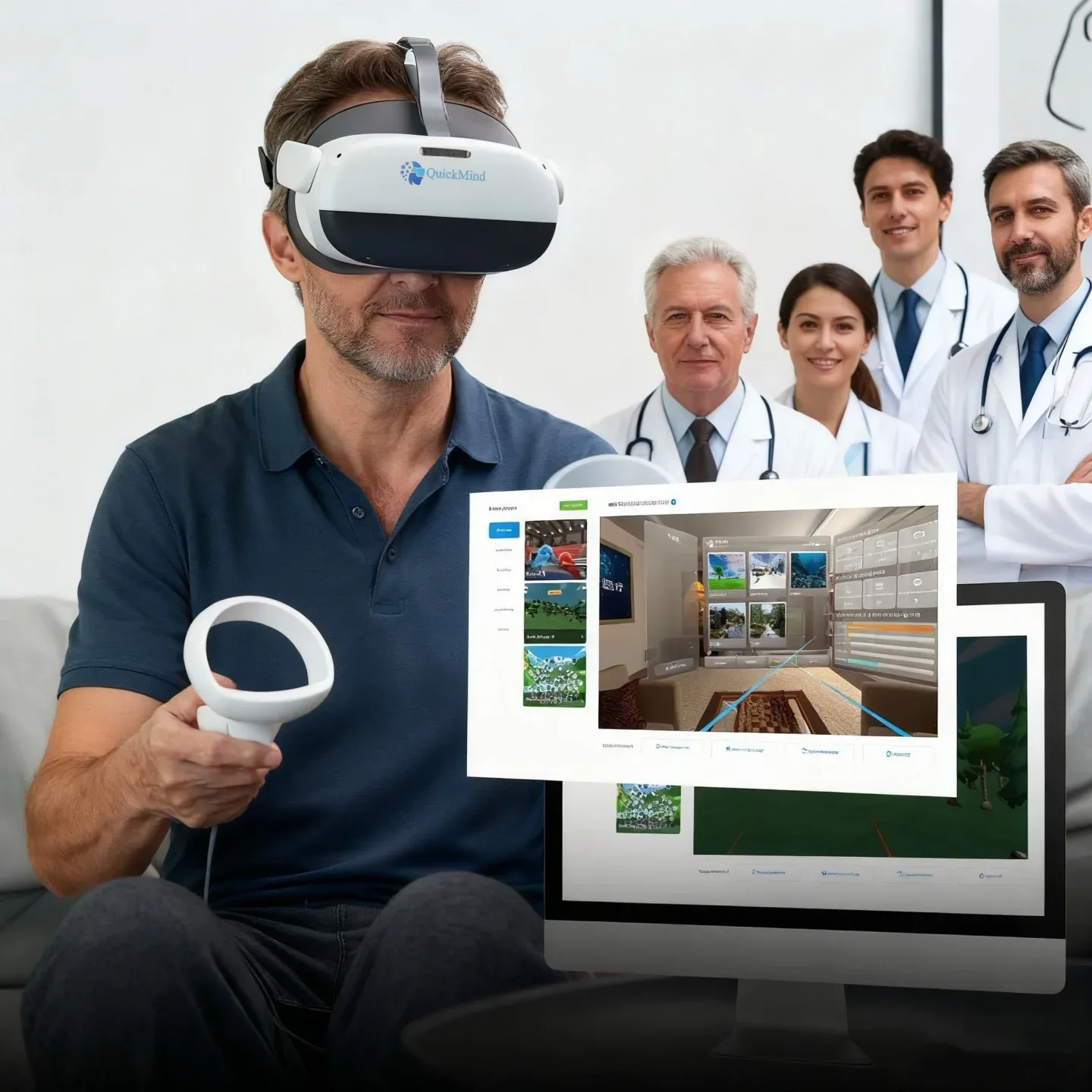
Progressive analyses reveals that Virtual Reality approach can considerably improve the health of clients coping with memory loss conditions. By transporting them to quiet environments, VR offers a original possibility for cognitive stimulation, sentimental adjustment, and collective involvement. Several inquiries have demonstrated that VR therapy can lower fretfulness, worry, and depression in dementia users while also enhancing their retention, attention, and conversational capabilities.
- VR grants subjects with dementia to revisit dear memories through interactive representations.
- Additionally, it can deliver a reliable and nurturing space for people connection, nurturing a consciousness of affiliation and togetherness.
- Professionals propose that VR therapy has the likelihood to modernize dementia service by supplying new and novel methods to resolve the multifaceted problems faced by persons suffering from this malady.
Tech-Driven Cognitive Therapies for Alzheimer's Patients
Developing software-based remedies are offering hope in the territory of mental capacity building for clients managing Alzheimer syndrome. These platforms make use of computing power to strengthen brain capacity and supposedly slow down the development of the malady. Gamified tasks, personalized assistance, and neurological training are some demonstrations of processes being analyzed in this evolving domain. While inquiries are proceeding, digital therapeutics offer a potential option for upgrading the experiences of those struggling with Alzheimer's disease.Novel VR Techniques for Alzheimer's Intervention
With respect to subjects managing neurodegenerative Alzheimer's type, the steady deterioration of recollection and mental skills can markedly hamper their capability to interact with the external world. This disabling state often elicits in loneliness, frustration, and a impaired personal identity. Current innovations in virtual reality technology provide a transformative chance to handle these problems by establishing immersive experiences that can encourage the brain and rekindle cognitive function.
Virtual scenario worlds developed specifically for Alzheimer's individuals can transport them in familiar contexts, such as their juvenile habitat or a favorite park, invoking positive memories and mitigating anxiety. Through interactive activities, these virtual universes can also challenge cognitive abilities like memorization, concentration, and decision-making.
The likely improvements of virtual reality in Alzheimer's treatment are substantial. Early analyses have established positive results, with subjects demonstrating improvements in cognitive skills, mood, and overall quality of life. As this technique evolves, it holds the key to altering the way we approach Alzheimer's disease, presenting a new pathway for management and empowerment.
Digital Memory Therapy for Alzheimer's Disease
Reminiscence therapy is a popular technique used to augment cognitive function and affective health in individuals with Alzheimer's disease. This customary form of therapy involves inviting patients to remember past experiences, often through interchange. However, a groundbreaking approach is emerging: VR-mediated reminiscence therapy.
This immersive technique utilizes virtual reality headsets to convey patients in authentic environments that recall memories from their past. By re-experiencing these virtual scenes, individuals with Alzheimer's can relate with their past in a powerful way.
The Role of VR in Enhancing Dementia Patient Recall and Cognition
Virtual reality (VR) is emerging as a promising resource in the fight against dementia, supplying innovative ways to enhance memory and cognition. By building immersive settings, VR can aid individuals with dementia retrieve memories, join in meaningful activities, and advance cognitive abilities. Studies have revealed that VR interventions can cause serious improvements in memory recall, attention, and geographical awareness. Moreover, VR provides a secure and positive space for individuals with dementia to interact, reducing feelings of isolation and worry.
- In addition, VR can be adapted to individual needs and preferences, granting increased levels of connection.
- In spite of the capabilities of VR, ongoing research is needed to fully understand its long-term impact in dementia care.
Reviving Recollections, Restoring Bonds: VR's Influence on Alzheimer's Social Interaction
Virtual simulated realms is emerging as a state-of-the-art device in the domain of Alzheimer's disease. By building engaging and participative spaces, VR has the potential to spark memories, enhance social interaction, and increase the overall quality of life for patients living with Alzheimer's. Prominently an promising aspects of VR is its ability to relocate users to familiar scenes and encounters Cognitive Rehabilitation from their past. Whether it's a visit to a childhood home or a imitation of a beloved holiday, these virtual journeys can invoke happy memories and consolidate cognitive skills. Furthermore, VR can assist social interaction by coupling individuals with others who share similar memories. This can be particularly valuable for people with Alzheimer's who may encounter obstacles with traditional social engagement. By providing a safe and interesting virtual space, VR can diminish feelings of isolation and loneliness, which are common among users living with Alzheimer's. Overall, VR holds immense promise for changing the lives of patients with Alzheimer's by reawakening memories, repairing connections, and upgrading their quality of life. As technology advances to expand, we can expect even more novel applications of VR in the field of dementia care.Applying Cognitive Training: Deploying VR in Cognitive Symptom Control
Artificial reality platforms is rapidly emerging as a breakthrough tool in the realm of cognitive training, particularly for clients affected by Alzheimer's disease. By immersing patients in interactive and engaging virtual environments, VR-based interventions can stimulate cognitive functions such as memory, attention, and problem-solving. These games routinely incorporate elements of storytelling, exploration, and social interaction, making the training process exceptionally satisfying. Studies have shown that VR-based cognitive training can lead to noticeable improvements in cognitive performance, likely delaying the progression of Alzheimer's symptoms. Moreover, VR provides a safe and controlled environment for patients to practice new skills and cultivate their confidence.
- Game-driven approaches in VR training can make it more interactive and appealing for people with mental challenges.
- VR simulations can offer realistic scenarios that drive and improve cognitive functions.
- Personalized VR experiences can cater to individualized wishes and procedures.
Virtual Reality as a Renewed Opportunity for Dementia Patients
Alluring simulated worlds offer a modern and encouraging avenue for participants with mental deterioration. These platforms can generate familiar environments, allowing those affected by cognitive decline to relive cherished memories and encourage a sense of solace. By addressing the effects of dementia, VR realities have the option to advance quality of life for both clients and their helpers.
- Analyses indicate that VR applications can favorably impact cognitive function, emotional well-being, and even motor abilities in individuals with dementia.
- Moreover, VR offers a safe and structured environment for interaction, reducing the risk of anxiety.
- In addition, VR can support social links by allowing individuals with dementia to socialize in augmented activities with others.
VR: A Promising Approach to Alzheimer's Diagnosis and Treatment
Alzheimer syndrome shows a difficult issue, often being undiagnosed in its early stages. Albeit, virtual reality (VR) is materializing as a state-of-the-art tool for precocious diagnosis. Through immersive scenarios, VR can assess cognitive faculty in ways that traditional methods are limited to. This power allows for quick response strategies, potentially pausing disease progression and improving the quality of life for people with Alzheimer's.
- Virtual reality tools assess memory, concentration, and spatial cognition under supervision.
- Personal VR platforms promote user engagement in cognitive enhancement practices.
- Computer-generated spaces provide social conditions for Alzheimer's clients to bond and mingle.
Bridging the Gap: Virtual Reality for Engagement and Involvement in Dementia Care
{In the realm of dementia care, innovative technologies are emerging to improve the lives of users with memory loss diseases. Virtual reality (VR) is one such tool that holds immense opportunity for bridging the communication and interaction gap often experienced by those with dementia. By building stimulating VR scenarios, VR can invoke cognitive function, reduce behavioral issues, and ultimately improve the overall well-being of persons diagnosed with dementia.
VR experiences optimized for dementia therapy can range from retrospection therapy sessions that guide clients through remembered environments, to interactive games that promote social interaction and cognitive challenge. Furthermore, VR has the potential to connect clients facing dementia with social networks, regardless of physical distance, fostering a sense of togetherness.
- VR can aid in reducing agitation and anxiety by providing a calming and focusing environment.
- Assessments have shown that VR interventions can lead to improvements in cognitive function, mood, and social interaction in dementia patients.
- As technology grows in advance, we can expect even more innovative and productive
